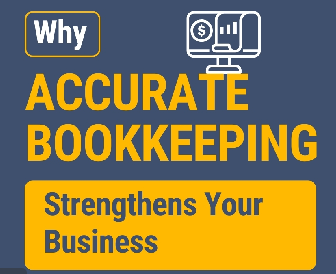
Small businesses are the backbone of the economy, driving innovation, creating jobs, and fostering economic growth. In their quest for success, small business owners often navigate a complex landscape of financial decisions, and one area that can significantly impact their bottom line is tax credits.
Understanding how to strategically harness tax credits with an expert tax advisor can be a game-changer for small business growth and innovation.
What Are Tax Credits?
Tax credits are incentives provided by governments to encourage specific activities or behaviors. They directly reduce the taxes a business owes, making them a powerful tool for small businesses to increase their cash flow and invest in growth.
While tax deductions reduce taxable income, tax credits reduce the actual tax liability, providing a dollar-for-dollar reduction in taxes owed.
The Benefits of Tax Credits
Tax credits offer small businesses several immediate financial benefits:
- Reduced Tax Liability:Small businesses can significantly reduce their tax bills by leveraging available tax credits. This means they have more funds to allocate to other critical areas, such as expansion or hiring.
- Enhanced Cash Flow:Tax credits can provide an injection of liquidity precisely when it’s needed. This can help businesses manage day-to-day operations, invest in equipment, or seize growth opportunities.
- Competitive Advantage:With reduced tax burdens, small businesses gain a competitive edge. They can offer better pricing, invest in marketing, or enhance the quality of their products and services, which can attract more customers.
- Innovation and Growth:Tax credits designed to stimulate innovation, such as Research and Development (R&D) credits, empower small businesses to invest in research and development activities. This fosters innovation, which can lead to the development of new products or services and a stronger market presence.

Types of Tax Credits for Small Businesses
A tax consultant will guide you regarding the tax credits your business can benefit from. Some of them include:
- Research and Development (R&D) Credits:These credits reward businesses for investing in innovation and technological advancements.
- Work Opportunity Tax Credits (WOTC):WOTC provides incentives to hire employees from target groups that often face barriers to employment.
- Small Business Health Care Tax Credit:Small businesses offering health insurance coverage to employees may be eligible for this credit.
- Energy-Efficient Equipment Deductions:Businesses that invest in energy-efficient equipment can benefit from deductions that reduce taxable income.
Talk to Us and Learn More
In the competitive landscape of small business, tax credits provide a unique opportunity for businesses. However, navigating the complex world of tax credits requires expertise and careful tax planning.
At Nidhi Jain CPA, we understand the significance of tax credits for small businesses. Therefore, we meticulously tailor our tax solutions to cater to the needs of clients seeking tax credit benefits.
If you wish to learn more or hire our tax and accounting services in the Bay Area, reach out to us here. We are San Jose’s trusted CPA firm.



